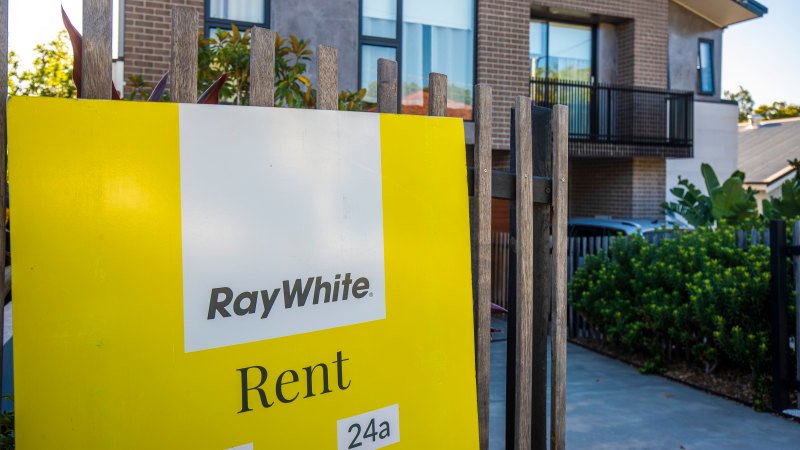Recent changes to tenancy laws are a start, but there are other steps renters can take to protect their rights in an increasingly competitive market.
Recent changes to tenancy laws are a start, but there are other steps renters can take to protect their rights in an increasingly competitive market.
- Perspective
- National
- Queensland
- Renting
By Courtney Kruk
January 16, 2025 — 4.00am
If you’re a long-time renter, you’ve likely had at least one bad – or outright traumatic – experience with a landlord or real estate agent.
I had my first about 10 years ago, when I was living in an old, rundown house near the beach. The list of claims at the end of the tenancy was unreasonable at best, so we engaged the Residential Tenancies Authority’s dispute resolution service.
Despite the RTA acting as a mediator (meaning they can’t enforce any action), we were able to argue against most of the claims. This felt like a victory until the house was knocked down a few months after we vacated.

No one wants an end-of-tenancy dispute, but how do you advocate for yourself in an increasingly tight and competitive rental market when the thing that’s on the line is whether you have somewhere to live?
Loading
Recent changes to tenancy legislation will hopefully improve renters’ rights and shift the power imbalance away from landlords, but it’s not the only step you can take to safeguard your rights as a tenant.
Spare no detail with entry and exit condition reports
An entry condition report is valuable collateral during end-of-tenancy disputes, and it’s probably the single most important thing to do when you move into a new home.
Take photos of everything (everything), from a centimetre-long scratch on the floorboards to a patch of mould in the shower. It’s a pain, but firsthand experience with unscrupulous property managers teaches you the importance of dated, photographic evidence.
Advertisement
Loading
An exit condition report is compared to the entry report at the end of a lease. While this is usually the domain of property managers, tenants are encouraged to complete an exit report too (I didn’t know this until recently). Again, take photos and note any discrepancies with your entry report.
Put everything in writing
Even if you have an approachable landlord, verbal assurances can change quickly at the end of a lease. Put any issues or requests in writing first so that if you end up in a dispute, you have a clear paper trail for reference.
Minimum rental standards and changes to tenancy laws
In June last year, Queensland introduced new rental laws that included a ban on rent bidding, limits on rent increases, the ability to transfer bonds between properties (not yet in effect), and supporting evidence for bond claims.
Supporting evidence is not defined by the Act, but examples include receipts, quotes to repair damage, and records of unpaid rent. This means agents should provide more than just a picture or ballpark amount to fix damage (or a claim on your entire bond for “repairs”). If you believe a claim amount is disproportionate, request further evidence, as per the legislation.

Minimum housing standards have been in effect for more than a year and require rental properties to meet a range of provisions, such as being weatherproof and structurally sound (important if your rental is in a flood zone); having functioning locks or latches; and being free from vermin, damp and mould.
A report released last year from rental advocacy group Better Renting found 59 per cent of renters surveyed in the year to May/June 2024 didn’t bring up issues because they feared retaliation from their landlord or real estate agent. Minimum housing standards should, hopefully, mitigate this fear and encourage renters to advocate for liveable homes.
Engage the RTA or QCAT
Loading
The Residential Tenancies Authority is a state government body that provides tenancy information and support to renters and property managers.
Call the RTA for general advice or search their website for fact sheets and resources, including to report repair concerns or a rental that’s not advertised at a fixed price.
Their advice is impartial (so don’t expect definitive “you’re right, they’re wrong” answers), but they are generous with information and will clarify the legislation.
For unresolved issues at the end of a tenancy, such as bond refunds or compensation claims, you’ll likely engage the RTA’s dispute resolution service. It’s not a legal service; their role is to mediate and help both parties reach an agreement, so you may not reach a satisfactory outcome.
If a matter isn’t resolved by the RTA, it escalates to the Queensland Civil and Administrative Tribunal. While there’s a public record of QCAT outcomes, you should only be concerned that this might affect your future rental prospects if your conduct warrants it.
If you are heading to QCAT, compile photographic evidence, email threads and relevant legislation to strengthen your case.
Report and review
Loading
The RTA doesn’t have an avenue to report unethical real estate agents or landlords, but you can lodge a report with the Office of Fair Trading.
You can also make a formal complaint to an agency principal, or leave a factual and honest Google review.
Last year’s tenancy law changes included a rental sector Code of Conduct to foster appropriate and professional practices in the state’s rental market. This is yet to be enacted.
Start the day with a summary of the most important and interesting stories, analysis and insights. Sign up for our Morning Edition newsletter.
Discover more from World Byte News
Subscribe to get the latest posts sent to your email.


